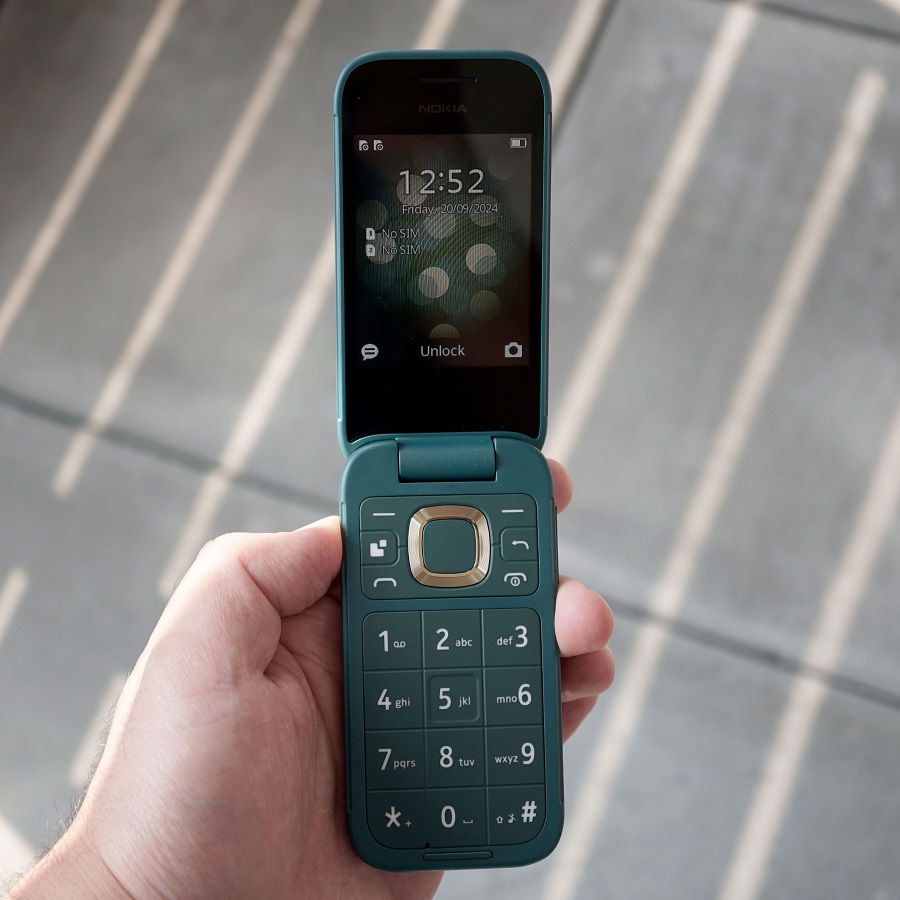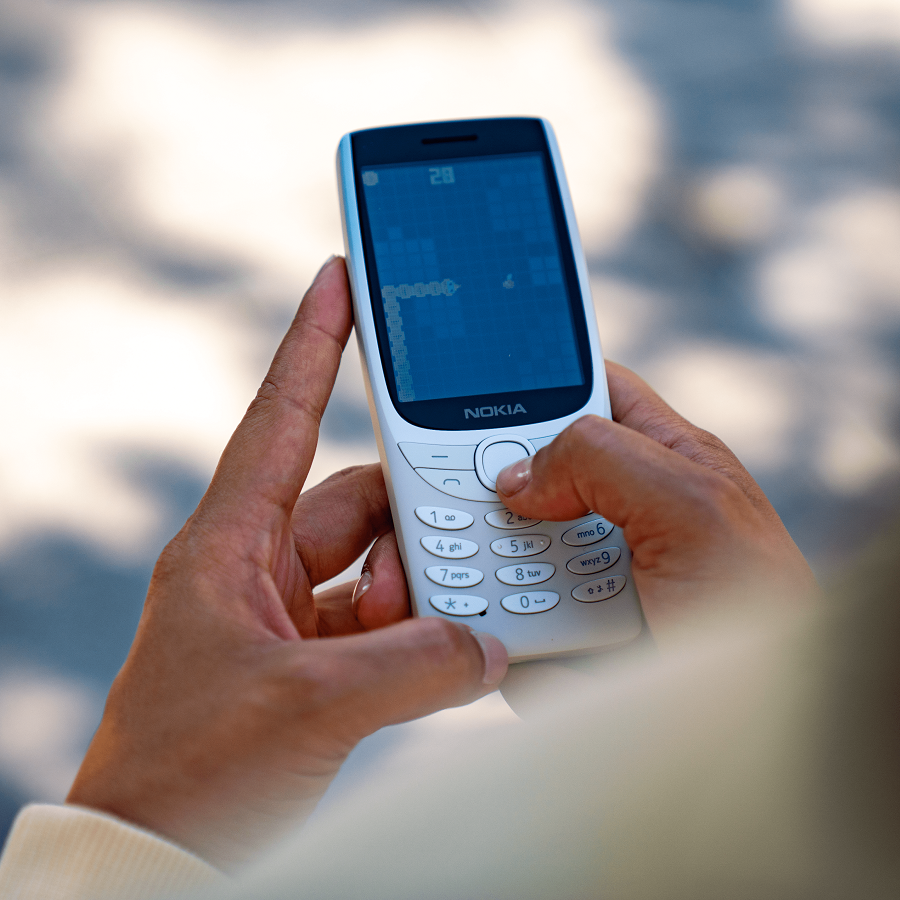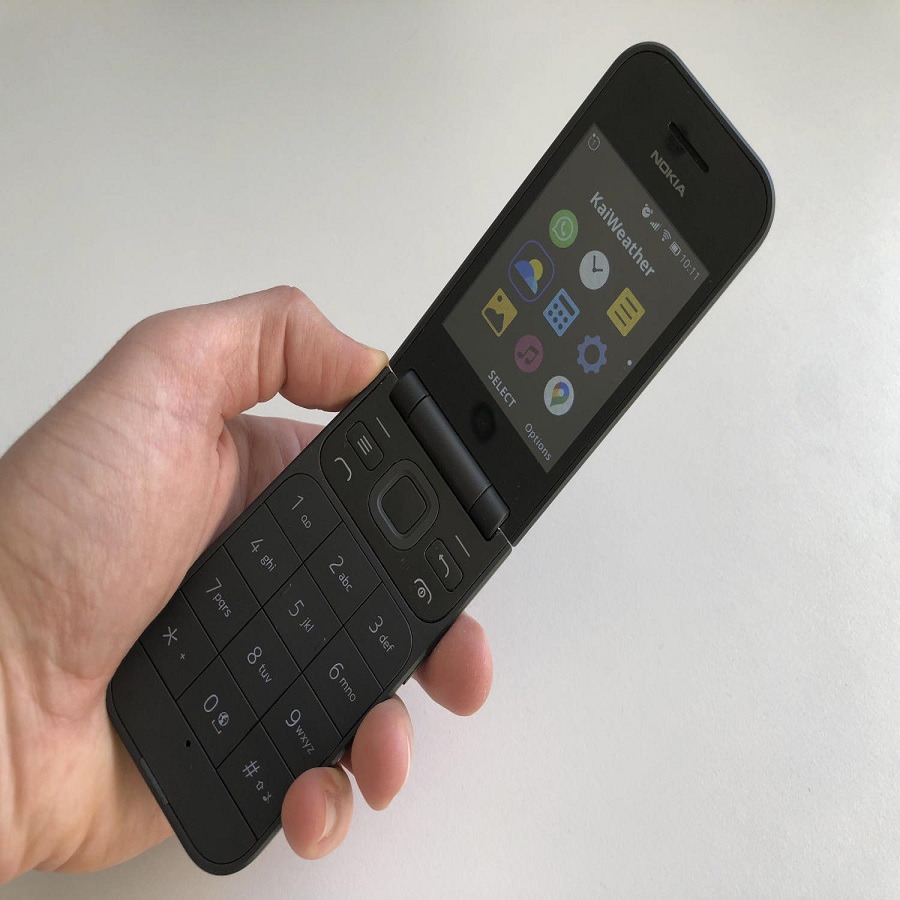The Growing Appeal of Dumb Smartphones
In recent years, a noticeable trend has emerged: the popularity of dumb smartphones. These devices, also known as feature phones, are winning over consumers tired of the constant bombardment of notifications, social media frenzy, and the overall distraction of advanced technology. Let’s break down why these seemingly basic gadgets are capturing people’s attention in a tech-saturated world.
Firstly, dumb smartphones offer a simplified experience. With limited functionality, these phones focus on the essentials like calling and texting, stripping away the non-essentials. This simplicity appeals to those seeking a break from the complexities of modern smartphones.
Secondly, there is a growing desire for digital detox. Individuals are becoming more aware of the impact of screen time on mental health. As a result, many are reaching for dumb smartphones as a tool for managing their digital consumption.
Moreover, literature on digital minimalism is gaining traction. The concept encourages thoughtful use of technology, emphasizing quality over quantity. Dumb smartphones embody this principle by eliminating the clutter of apps and features that often lead to digital overload.
Notably, the trend is not just among the older generations. Gen Z, despite being digital natives, are showing an increased interest in dumb smartphones. Their concerns about privacy, data harvesting, and the desire for genuine human interactions are driving them towards these devices.
Lastly, the affordability factor plays a significant role. Dumb smartphones are typically more cost-effective than their high-end counterparts. This accessibility makes them an attractive option for those on a budget or who prefer to spend their money elsewhere.
In short, the appeal of dumb smartphones lies in their simplicity, mental health benefits, alignment with digital minimalism, privacy concerns, generational shift, and affordability.

Key Features of Popular Dumb Smartphone Models
Dumb smartphones have features that set them apart from typical smartphones. Most importantly, they provide basic functionality without the distractions of advanced applications and features. When considering a dumb smartphone, here are some key features to look out for:
- Limited internet connectivity: Dumb smartphones often have minimal or no access to the internet. This limitation is a boon for those seeking less screen time and fewer distractions.
- Essential communication tools: These phones include basic calling and texting features. They might also have simple additional functions like FM radios or alarm clocks.
- Extended battery life: Without power-hungry apps running in the background, dumb smartphones boast longer battery life. This means less frequent charging and more reliability.
- Physical keyboards: Unlike touchscreens, many dumb phones feature physical buttons. This retro aspect can offer a more tactile and deliberate texting experience.
- Robust build: Dumb phones are often more durable than delicate smartphones. They can withstand drops and rough handling much better.
- Privacy and security: With simpler systems, these devices usually store less personal data. They are seen as more secure against data mining and breaches.
- Affordability: As the previous text indicated, these phones can be much cheaper than advanced models, making them accessible to a wider audience.
People opt for dumb smartphones for their straightforward features and the peace of mind they offer. Whether it is due to a desire for a digital detox or a need for a less expensive, durable phone, dumb smartphones cater to a variety of needs and preferences.
Understanding the ‘Digital Detox’ Movement
The term ‘Digital Detox’ refers to a period of time when a person refrains from using digital devices. This includes smartphones, computers, and other electronic gadgets with internet connectivity, aiming to reduce stress, focus on social interaction, and foster overall well-being. The movement is a response to the constant connectivity and the influx of information that characterizes the modern digital age. More and more people are recognizing the need to take breaks from their screens to reset and recharge.
Why People Choose to Digital Detox
- Mental Clarity: Reducing screen time can help clear the mind and decrease anxiety.
- Improved Sleep: Excessive use of devices, especially before bed, can disrupt sleep patterns.
- Better Relationships: A detox can encourage more face-to-face interactions with family and friends.
- Increased Productivity: With fewer digital distractions, many find they accomplish more.
- Physical Health: Time away from screens can promote more physical activity and less sedentary behavior.
- Mindfulness: Being present in the moment is easier without the lure of constant notifications.
Ultimately, the Digital Detox movement is about finding a healthy balance between connected and disconnected life. It recognizes the profound impact technology has on mental and physical health and seeks to mitigate this by fostering periods of unplugged, tech-free living. Whether it’s for a few hours a day or a longer stint, many are embracing this trend to improve quality of life.

The Shift in Gen Z’s Approach to Technology
Gen Z is pivoting towards dumb smartphones with growing fervor. Born into a digital world, this generation is now seeking solace in simpler tech. Dumb smartphones fit neatly into their changing tech-use habits. Here’s how Gen Z’s approach is shifting:
- Mindful Usage: Gen Z prefers technology that supports mindfulness over mindless scrolling.
- Privacy Protection: Concerns over data privacy push them towards less intrusive dumb smartphones.
- Real Conversations: There’s a craving for authentic, face-to-face interactions over digital communication.
- Mental Health: The impact of social media on their well-being is leading them to reconsider their digital diets.
- Environmental Concerns: Gen Z often values sustainability, and the longer lifespan of dumb phones aligns with this.
- Financial Savviness: With many standing at the onset of their careers, affordable dumb smartphones make financial sense.
- Trendsetting: In turning away from smartphones, they’re setting new standards for tech usage.
In embracing dumb smartphones, Gen Z shows a sophisticated grasp of tech’s role in life. Their choices signal a critical evaluation of technology’s promises versus its delivery. They prioritize meaningful experiences over the allure of the latest app or feature. It’s a move that’s not just thoughtful, but perhaps revolutionary, as it challenges the tech industry to adapt to their demands for simplicity and genuineness.
From Smart to Dumb: Real-life Experiences
As the trend for dumb smartphones grows, real-life stories shed light on their impact. Here are some experiences:
- Back to Basics: People find joy in returning to simple tech. Calls and texts become the focus, not apps.
- Reduced Anxiety: Without constant notifications, many report feeling calmer and less stressed. Life without endless alerts is refreshing.
- Increased Presence: Dumb phone users often feel more present. They engage more in real-world conversations and activities.
- Productivity Boost: With fewer digital distractions, some users find themselves completing tasks more efficiently.
- Long-Lasting Contact: Without the need for daily charging, dumb phones become reliable companions on the go.
- Privacy Comfort: The simplicity of dumb phones offers users a sense of security in their reduced digital footprint.
- Cost-Effective: Many are pleased with their lower phone bills and the affordability of dumb smartphones.
These experiences echo the collective yearning for a simpler, less connected lifestyle. It seems trading ‘smarts’ for simplicity comes with its own smart benefits. From reduced distractions to increased interactions, the switch to dumb phones reflects a pursuit for a balanced digital life.
How Dumb Smartphones Address Digital Minimalism
Digital minimalism focuses on using tech with purpose. Dumb smartphones fit this philosophy well. They strip back to basics, leaving only what’s necessary. This means no social media apps or overwhelming notifications. Users have what they need and nothing more. This aligns with the minimalist goal of intentional tech use.
Core Benefits of Dumb Smartphones for Minimalists
- Distraction-Free: No apps for social media or games means fewer distractions.
- Intentional Communication: Calls and texts become more thoughtful without instant messaging.
- Productivity: Less time on phones means more focus on important tasks.
- Lower Costs: Dumb smartphones are cheaper, aligning with minimalist values of frugality.
- Durability: Simple build means they last longer and need less frequent replacements.
- Privacy: With basic features, these phones collect minimal data. That increases security.
- Mental Health: Less screen exposure leads to better sleep and lower stress levels.
In short, dumb smartphones encourage mindful tech usage. They promote a balanced digital life, essential for today’s fast-paced world. Minimalists find these phones ideal for staying connected, without the digital clutter.

Dumb Smartphone Options for Different Needs
When selecting a dumb smartphone, assessing personal needs is key. Here’s a guide to finding the right fit:
- Basic Communicators: For those who value straightforward talk and text capabilities above all else. Models like the Nokia 6300 or the Light Phone II offer just that, ensuring you stay connected without fuss.
- Durability Seekers: Rugged options exist for the accident-prone or outdoor enthusiasts. Phones such as the Nokia 2780 boast a tough build, ready for any adventure or mishap.
- Minimal Tech Users: Some users may want minimal tech features like alarms or FM radios. The Sunbeam F1 Horizon or Punkt MP02 fit the bill, blending simplicity with a few practical tools.
- Privacy Advocates: For heightened security, phones like the Wisephone II limit data exposure. They offer peace of mind for those concerned about privacy.
- Aesthetics Appreciators: If design matters, the Punkt MP02’s sleek look impresses. It’s minimalist yet stylish, proving dumb phones can be visually appealing too.
- Budget-Conscious Consumers: Affordability is essential for many. The Tracfone TCL Flip 2 provides essential functions without breaking the bank.
- Tech Detoxers: For a digital break, options like the Unihertz Jelly Star allow app access but discourage prolonged use due to its smaller screen.
In conclusion, whether you seek simplicity, affordability, or specific features, there’s a dumb smartphone to meet your goals. Choose one that aligns with your lifestyle and enjoy the benefits of a more focused, less distracted daily routine.
The Future of Dumb Smartphones: Trends and Predictions
As we look to the future, dumb smartphones seem set for growth. Here are some trends and predictions:
- Increased adoption: More people will choose dumb smartphones. The appeal of a quiet, less intrusive tech life speaks to many.
- Design improvements: Expect better aesthetics and user-friendly designs. These phones will look good and feel right in the hand.
- Feature refinement: Future models will refine the essential features. This will make the basics like calling and texting even easier.
- Privacy emphasis: Security will be a big selling point. People care about keeping their data safe.
- Eco-friendly options: There will be a push for sustainability. Dumb smartphones with eco-friendly materials and longer life spans may emerge.
- Market expansion: More brands might enter the space. Competition will drive innovation.
- Tech detox culture: The digital detox movement will gain wider acceptance. It will be normal to unplug regularly.
In sum, dumb smartphones are not a passing trend. Their rise reflects our need for balance in the digital age. The path forward for tech seems to be not just smarter, but wiser too.


